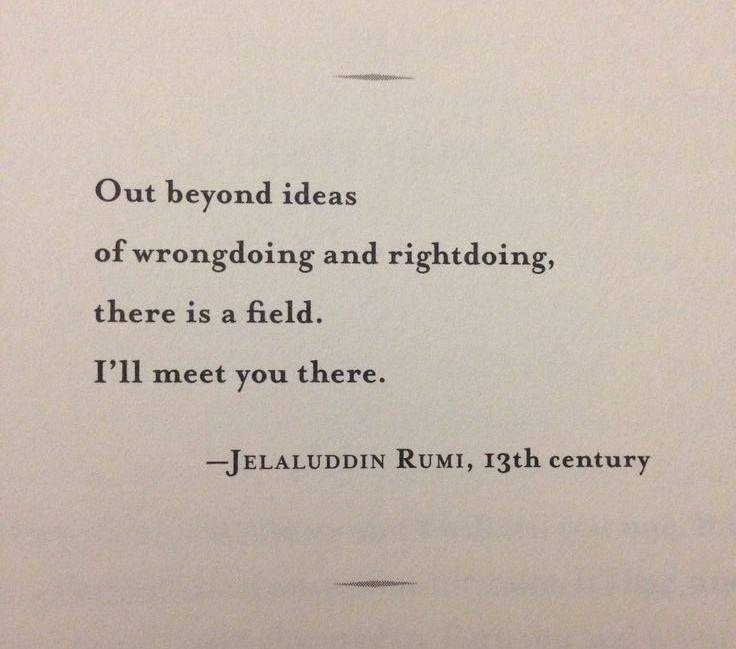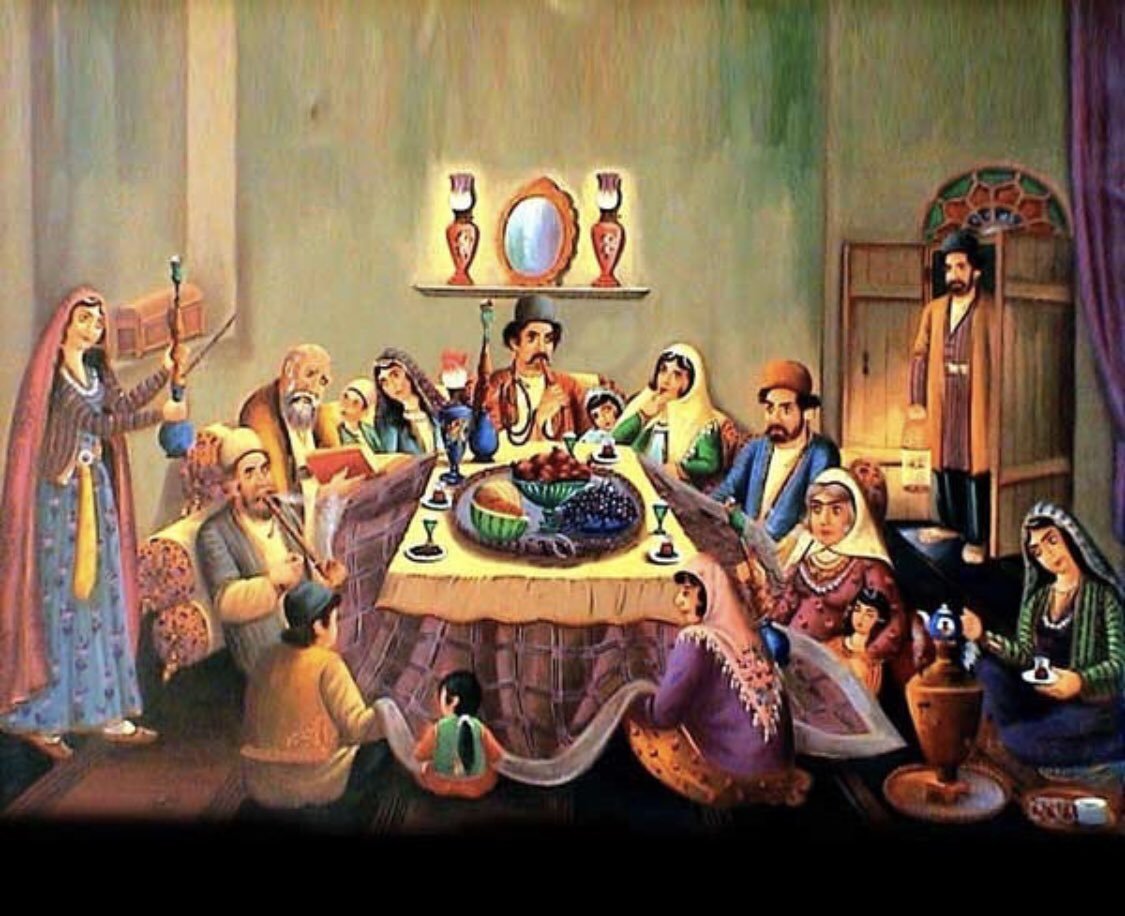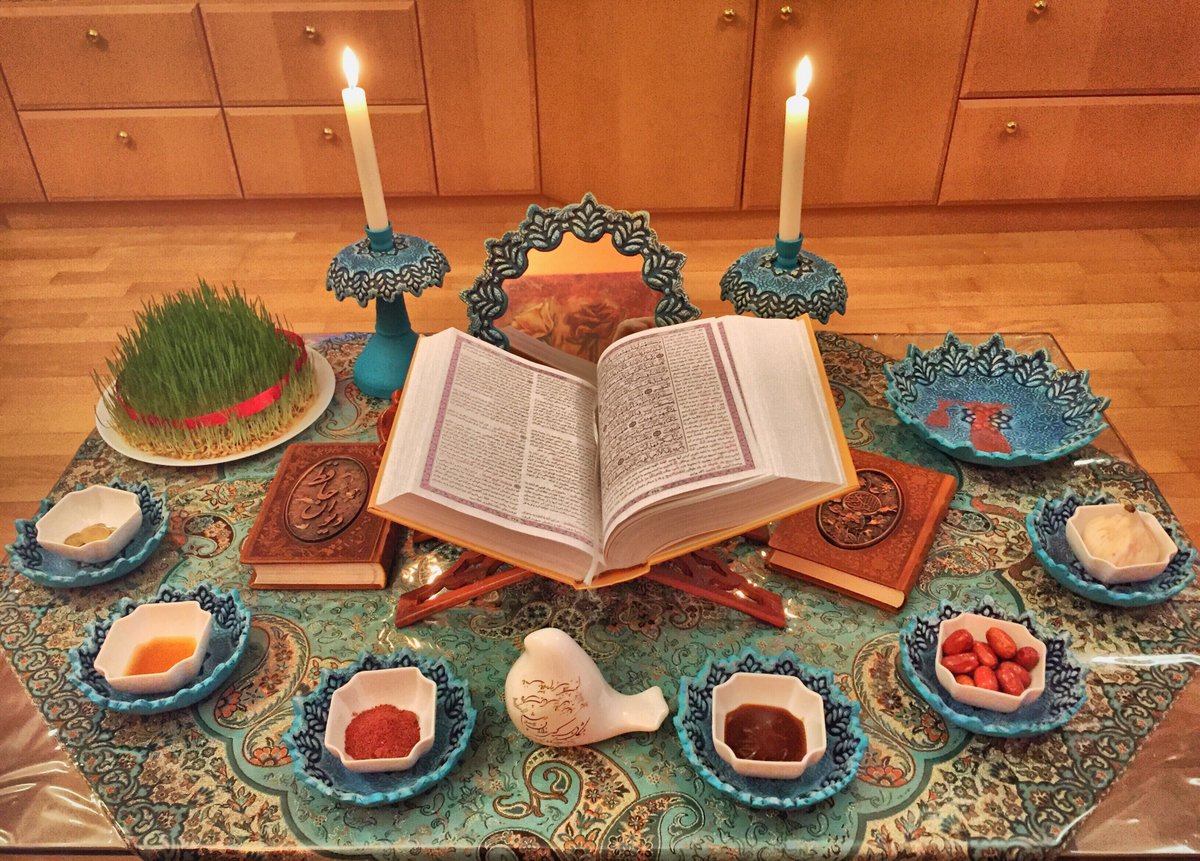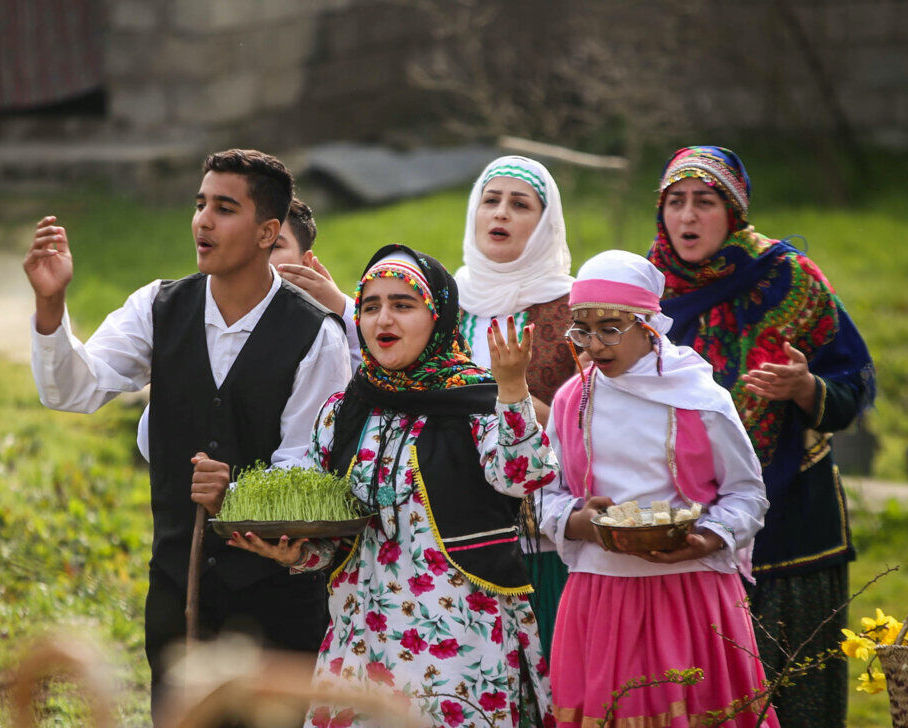Thread: The Orientalizing of Moulana Rumi
Many of you may be familiar with the 'Rumi quotes' that circulate the internet. What if I told you the vast majority of them are fake and they are part of a project to secularize Rumi? This isn't a whatsapp conspiracy.
Many of you may be familiar with the 'Rumi quotes' that circulate the internet. What if I told you the vast majority of them are fake and they are part of a project to secularize Rumi? This isn't a whatsapp conspiracy.
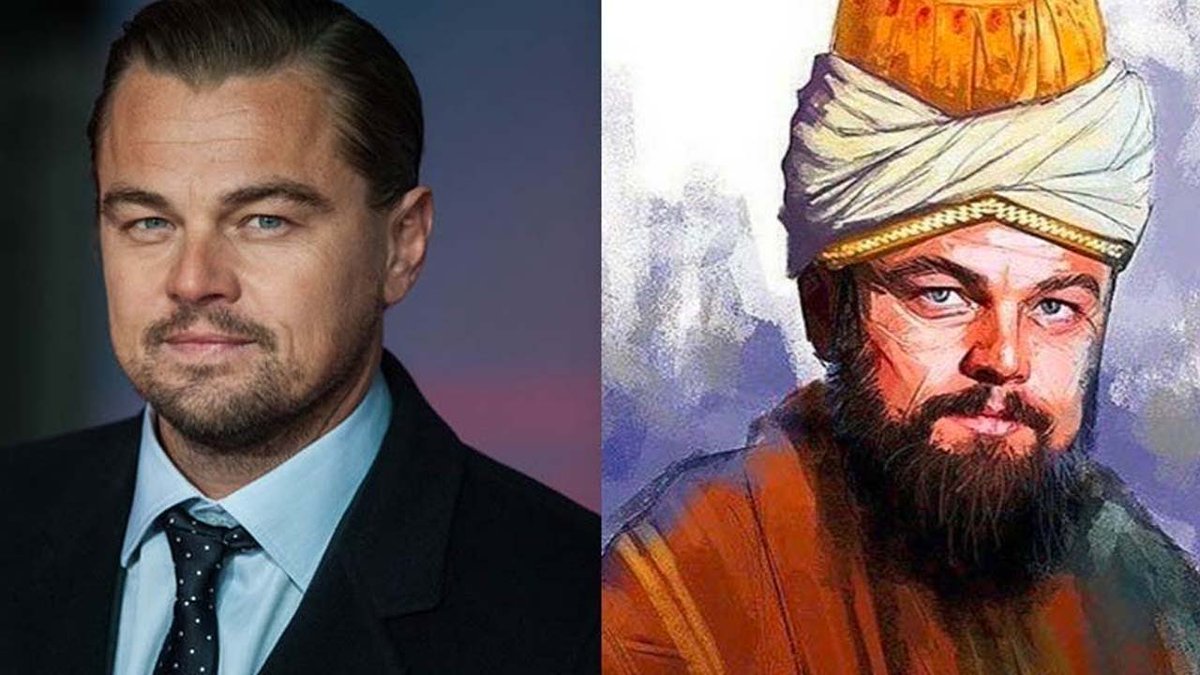
Ivanka Trump, the daughter of the most Islamophobic president in US history, tweeted it out after her dad failed to make peace in Afghanistan. If Rumi were alive today, her dad wouldn't even allow him in the country. The irony. 
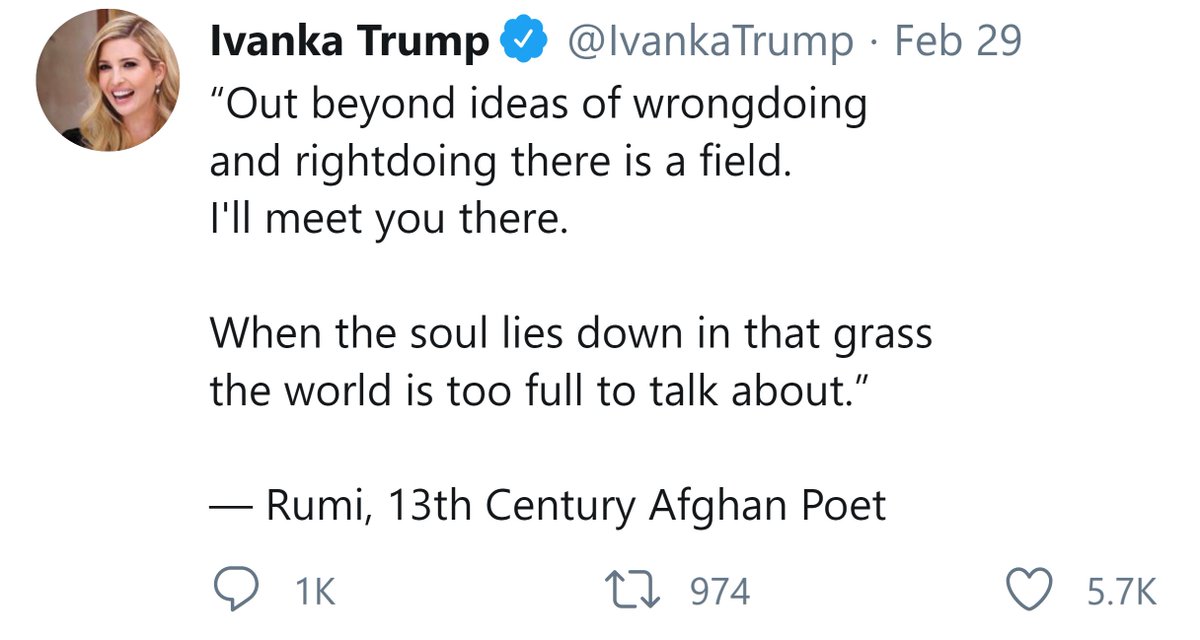
Where is this quote from? It's from 'The Essential Rumi' probably the best selling poetry book in America, written by Coleman Barks who has made his career peddling Rumi 'translations.' 
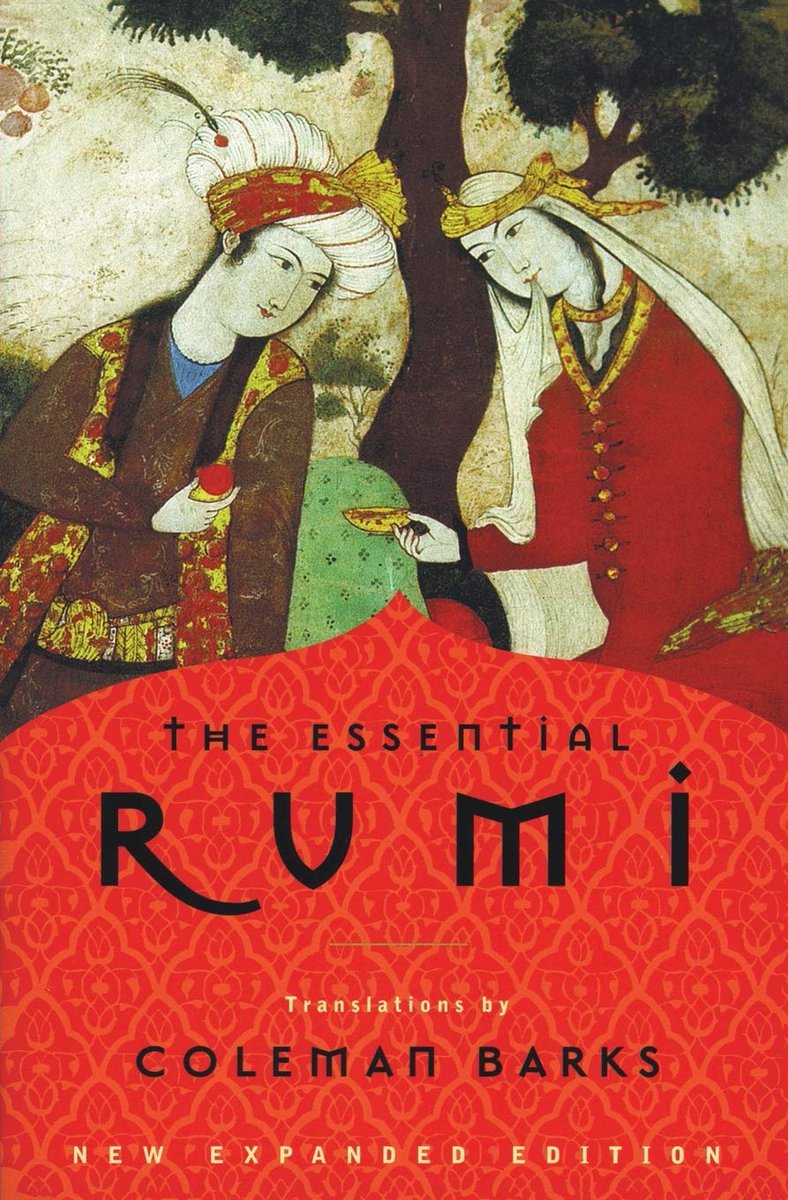
Meet Coleman Barks, the man responsible for nearly every 'Rumi quote' you've seen. Coleman hasn't studied Islam, Sufism, or Persian in academia or traditional settings, he doesn't even know Persian! But that didn't stop him from writing over a dozen translation books! 
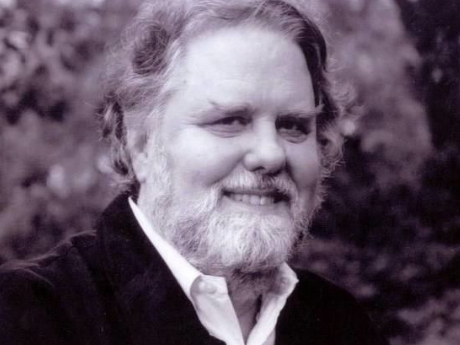
In a country where poetry books struggle to sell even a few thousand copies, Barks has sold over five hundred thousand, literally making millions from Moulana Rumi's writings. 

After three decades of 'translating' Moulana Rumi, Barks managed to establish himself as a scholar. Here he is giving a Ted talk about his 'translations.' 
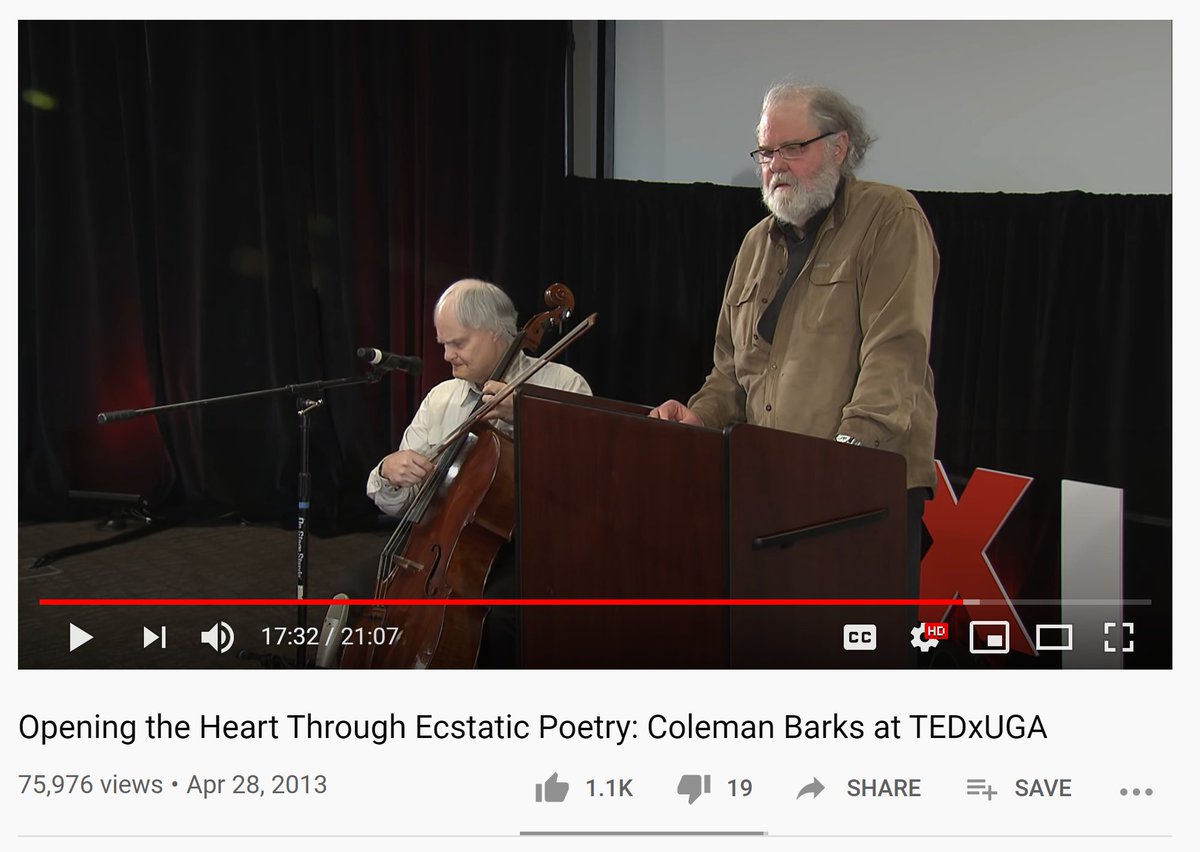
Remember when I said he has no formal qualification? Scratch that, he was actually given an honorary doctorate by the University of Tehran (Iran's premier university) for all of his... scholarship... right. With friends like this, who needs enemies! 
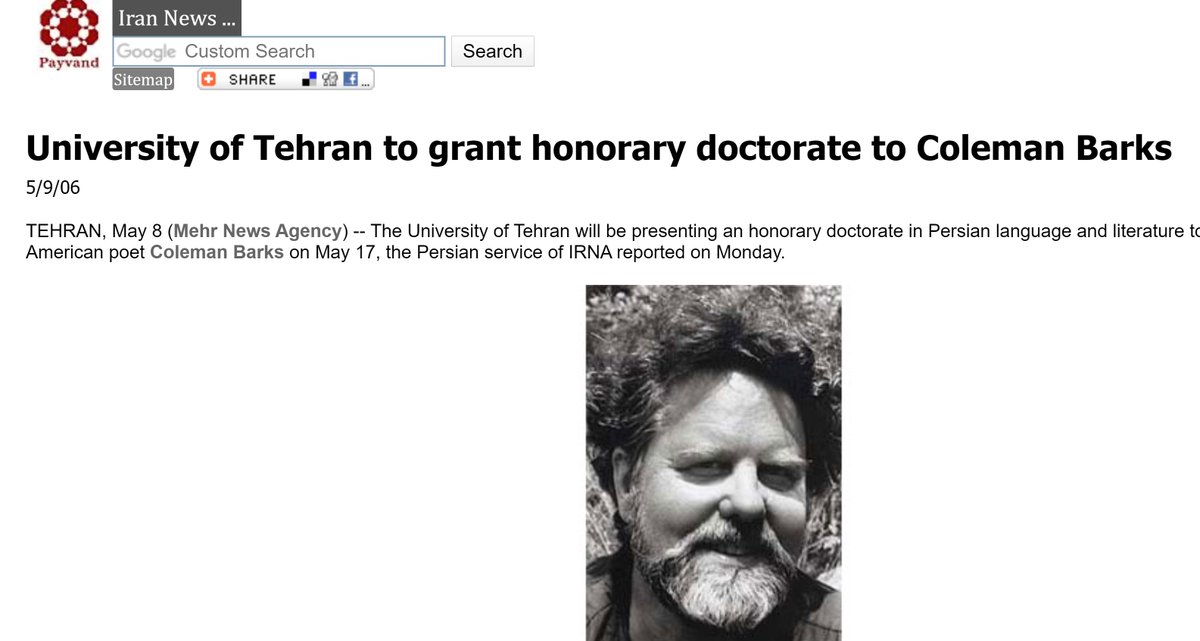
“I see a type of ‘spiritual colonialism’ at work here: bypassing, erasing, and occupying a spiritual landscape that has been lived...by Muslims from Bosnia and Istanbul to Konya and Iran to Central and South Asia.” a gem from an actual real Rumi scholar, @ostadjaan 
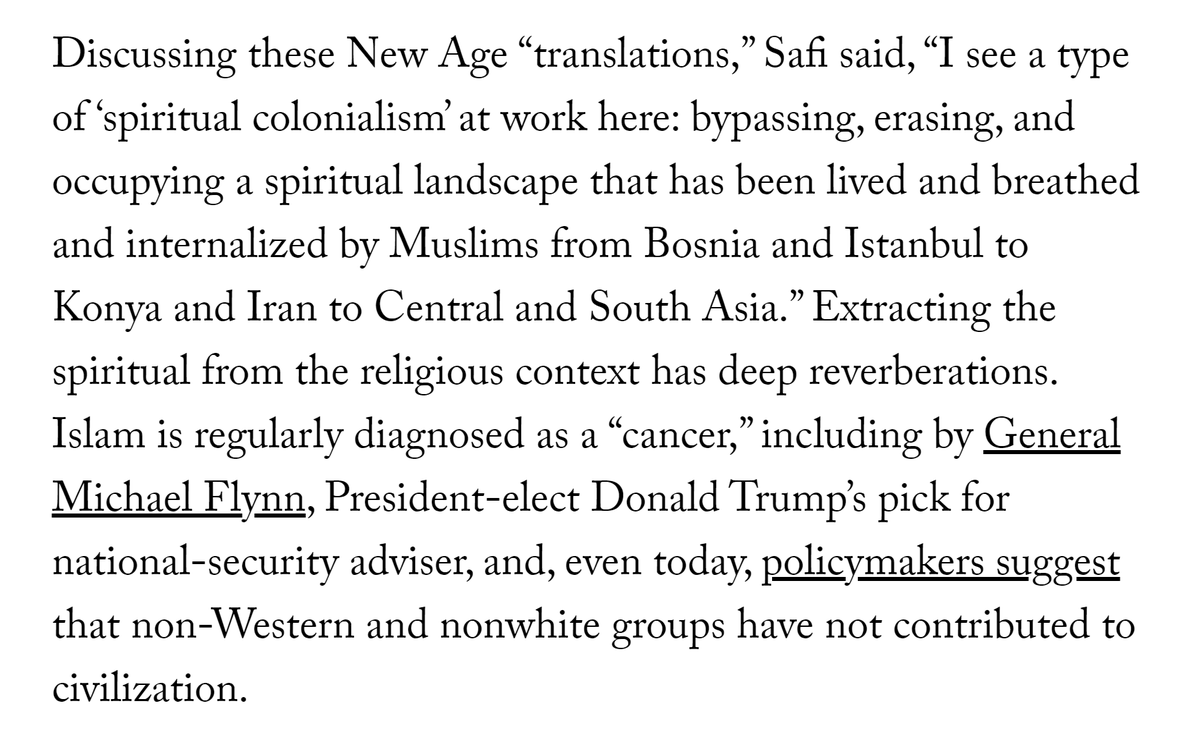
Persians call Rumi's Masnavi, "The Qu'ran in Persian." It's a storybook that embodies the spirit of the Qu'ran in simple, rhyming Persian for the non-Arabic speaking masses. One cannot understand the Masnavi w/o the Qu'ran, but alas “The Koran is hard to read.” remarks Barks. 
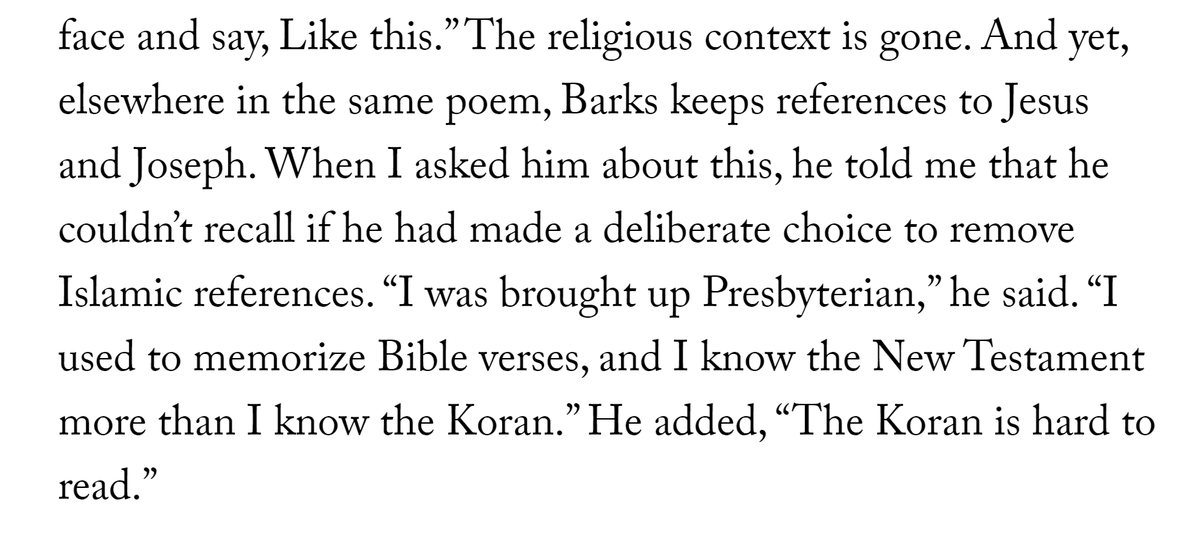
But let's go back to the quote I mentioned earlier. I've found the original Persian text (that Coleman can't even read) and translated it into English. Notice anything? 

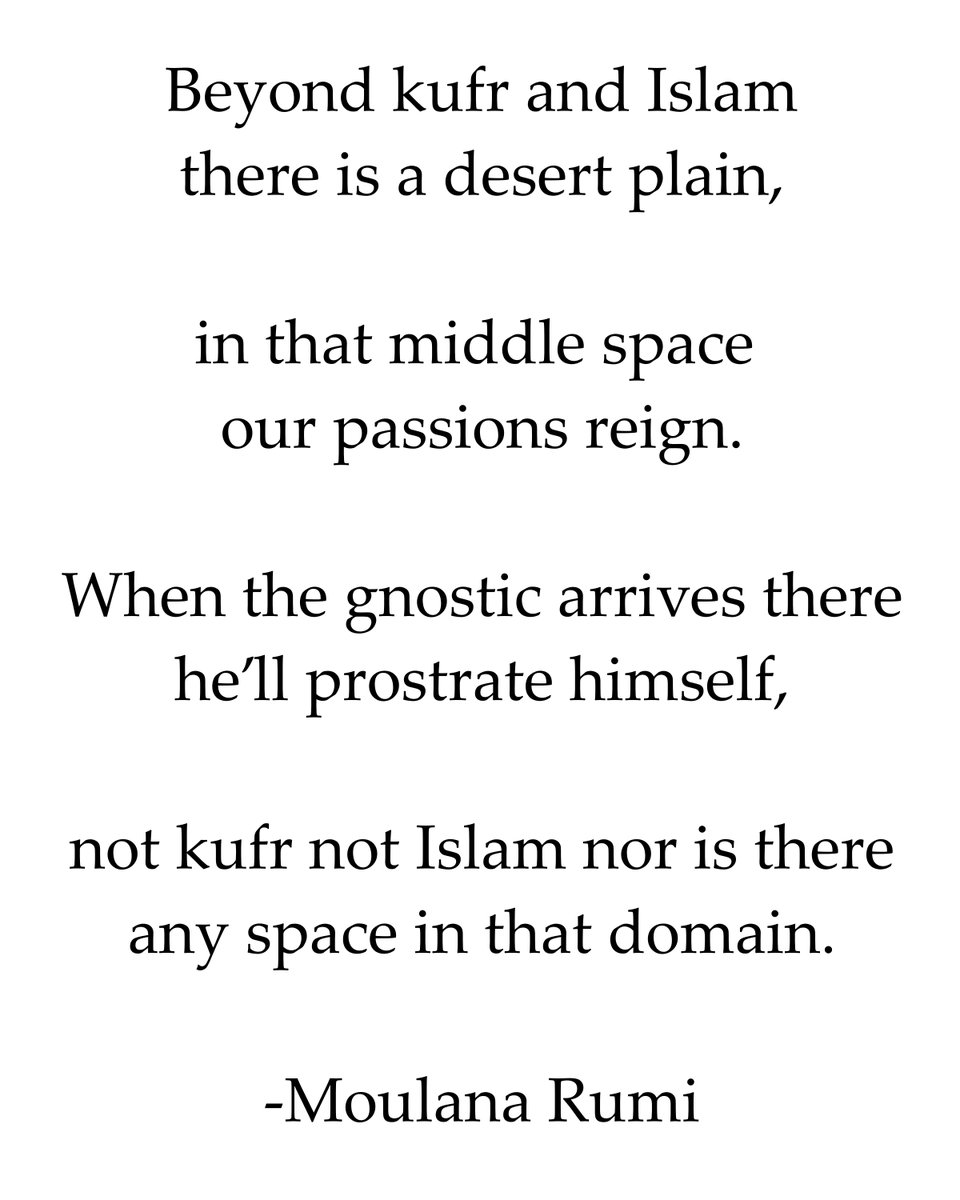

Compare my mostly literal translation with Coleman's 'translation.' My heart aches for those who only know Moulana Rumi via this orientalist garbage masquerading as a translation. 
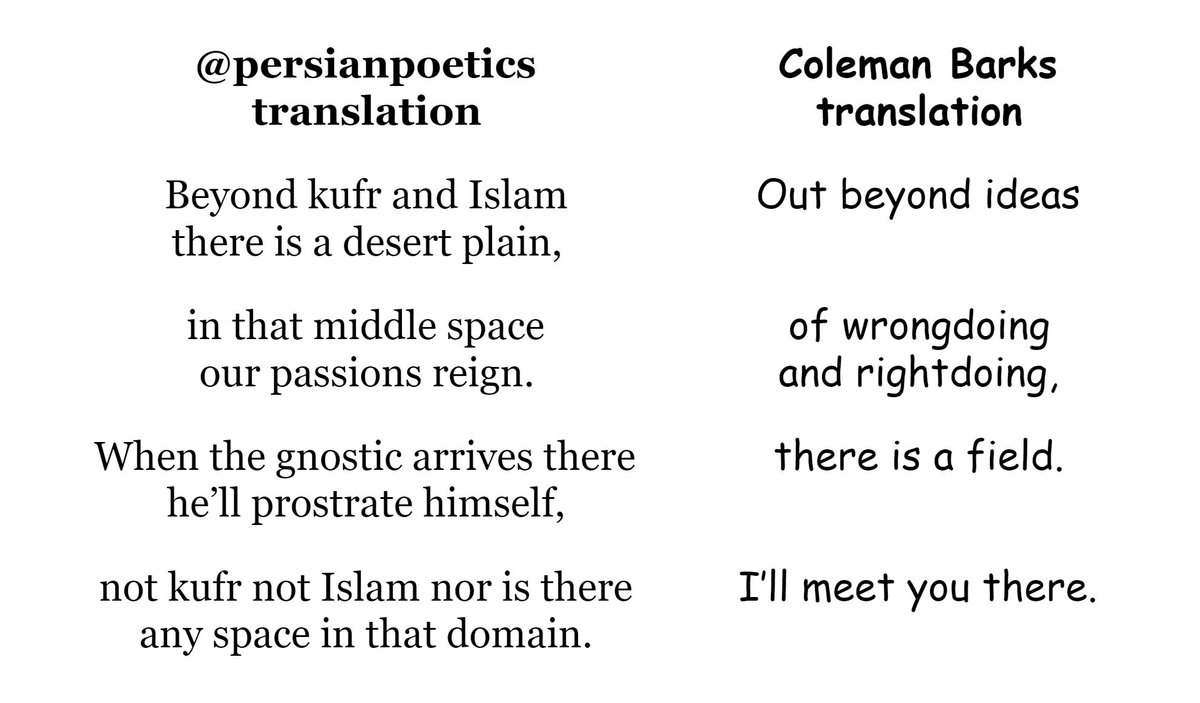
Take this second poem. All of the Islam is removed to the point where the poem is almost meaningless. 'Home' (dargah) in Persian is unnecessarily translated as 'caravan'. This divergence from the original exposes the orientalist mindset of these 'translators.' 
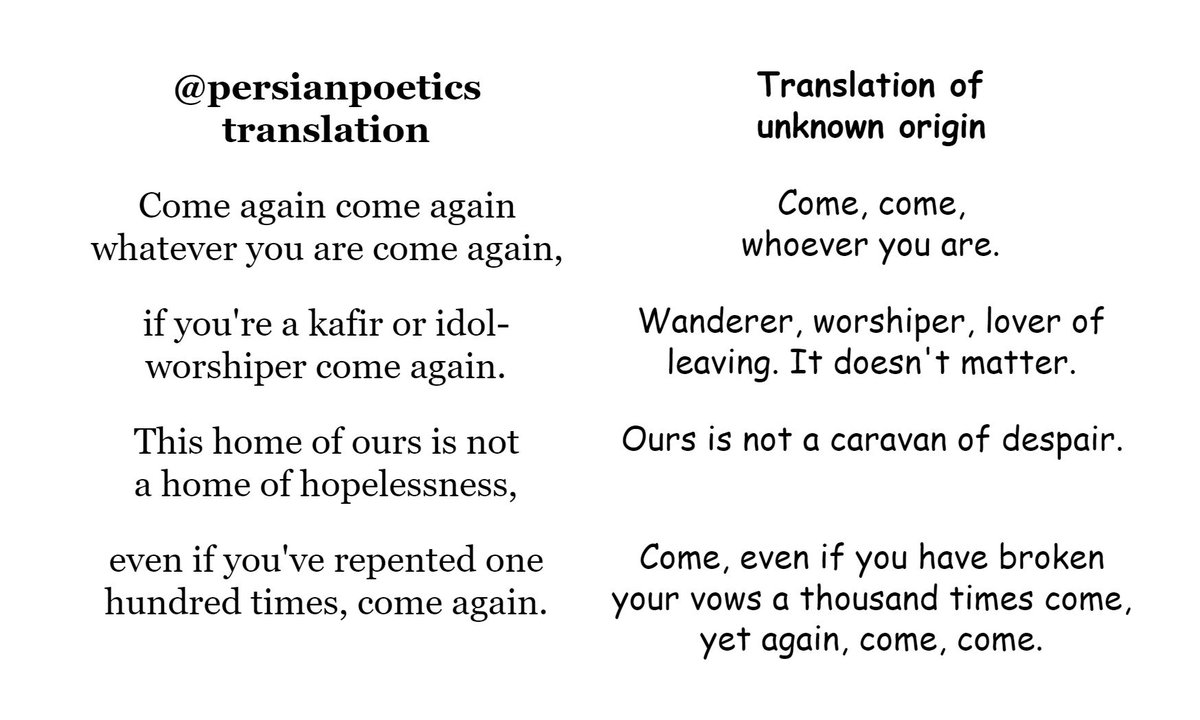
To help us de-construct orientalist narratives and accurately translate Persian poetry, please support us at patreon.com/persianpoetics and find us on insta instagram.com/persianpoetics
For those who would like another way to support this project, we also have clothing for sale:
teespring.com/stores/persian…
teespring.com/stores/persian…
• • •
Missing some Tweet in this thread? You can try to
force a refresh

